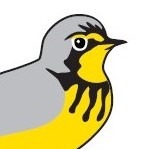By Kathy Jones, Ontario Programs Volunteer Coordinator, Bird Studies Canada

American Woodcock Photo: Christian Artuso
Early each spring, Citizen Scientists across eastern North America dedicate one evening to counting and listening to “peent”-ing American Woodcocks around sunset. These volunteers are part of the American Singing Ground Survey, delivered in Ontario by Bird Studies Canada in partnership with Environment and Climate Change Canada and the Ontario Ministry of Natural Resources. This survey is a large U.S. Fish and Wildlife Service program that monitors the American Woodcock population in eastern North America. About 800 roadside routes across 25 states and provinces are surveyed annually. There are over 100 woodcock routes in Ontario and, on average, Bird Studies Canada volunteers survey 90 annually.
The data collected are summarized in the American Woodcock Population Status report. This report is available for download and is used throughout Canada and the United States to track populations and inform conservation management decisions. Trend data show this species is declining across its range. The rate of decline in Ontario has increased over the last 10 years. This continued decline has been attributed to widespread habitat losses due to natural succession as formerly cleared areas have reverted to forest.
Ontario is an important component of the American Woodcock breeding range. These data highlight the importance of regular monitoring and conservation actions to ensure that we continue to hear and see this delightful early spring migrant.
What can you do to help?
• Participate in the American Woodcock Singing Ground survey! In Ontario, we need 10-30 new volunteers annually. You can visit these links to learn about the Ontario surveys and review the training materials. Then, contact WeblessSurveyCoordinator@fws.gov to find the coordinator in your area.
• Maintain healthy woodlots with a mixture of forest types to ensure a variety of habitats and natural biodiversity.
• Use Bird Studies Canada’s top ways to help birds.
Many thanks to all survey volunteers and coordinators as well as Bird Studies Canada’s Ontario partners: the Ontario Ministry of Natural Resources and Forestry and Environment and Climate Change Canada.

